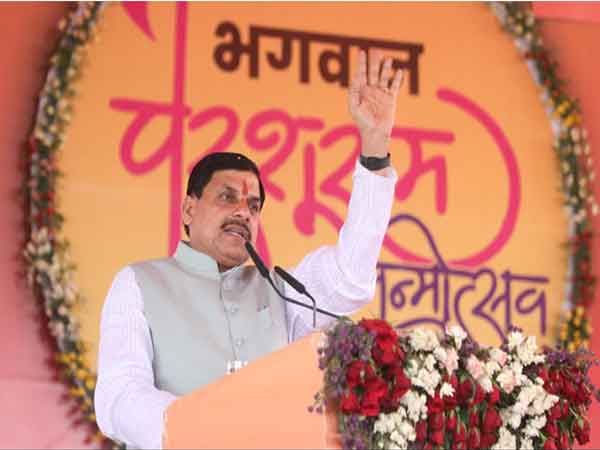MP: Devotee worship 'Jawar' on last day of Navratri at Balaji temple in Chhatarpur
Oct 23, 2023

Chhatarpur (Madhya Pradesh) [India], October 23 : Scores of devotees visited Balaji temple located in Madhya Pradesh's Chhatarpur district on Monday to worship 'Jawar' Khappar installed here on the occasion of the last day of Navratri festival.
The Balaji temple is situated in city Kotwali area in the district. It is believed that all the wishes of the devotees are fulfilled by paying obeisance here.
'Jawar' is placed in a mud pot called 'Khappar' and it is installed on the first day of Navratri. It is a traditional form of worshipping Goddess Durga when the statues were not as popular. After the worship, the immersion of Jawar takes place on the last day of Navratri.
This year, a total of 108 Jawar Khappars are placed along with the nine idols of Goddess Durga at the temple.
During this, a devotee Surendra Soni shared his experiences and said that he was witnessing the rituals from the last 40 years being performed in the temple.
"We have been visiting this temple for about 40 years. Earlier there used to be only one Jawar Khappar and today the number has increased to 108. All this happened due to the grace of Mata. Where there is her blessing, there is only joy and happiness. The devotees come here, get their Khappar Jawar installed and their lamps lit," Soni said.
"The Godsess' blessings are upon everyone. The devotees come and take her blessings. Whatever wishes one has, they are fulfilled here", he added.
The nine-day-long festival of Shardiya Navratri is intended for worshipping Maa Durga and her nine avatars, known as Navdurga. Navratri means 'nine nights' in Sanskrit. Hindus observe a total of four Navratris throughout the year.
The 10th day of Sharad Navratri is celebrated as Dussehra or Vijaya Dashami.
From Paksha's Navami until the Pratipada, Shardiya Navratri is observed. While it is celebrated with great fanfare across the nation, distinct traditions are more commonly practised in different states.
Meanwhile, in various parts of the country, Ram Leela, a celebration in which scenes from the Ramayana are also performed during the Navratri festival. The burning of King Ravana's effigies marks the story's conclusion on Vijayadashami.

















